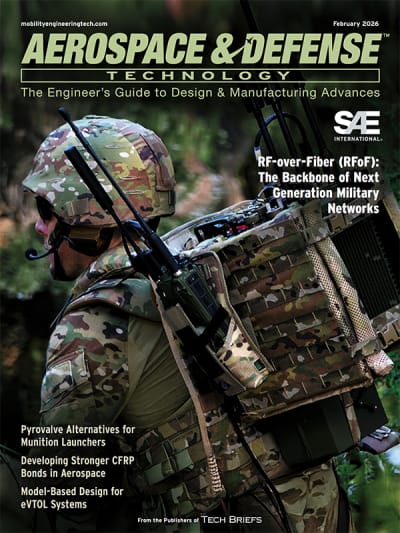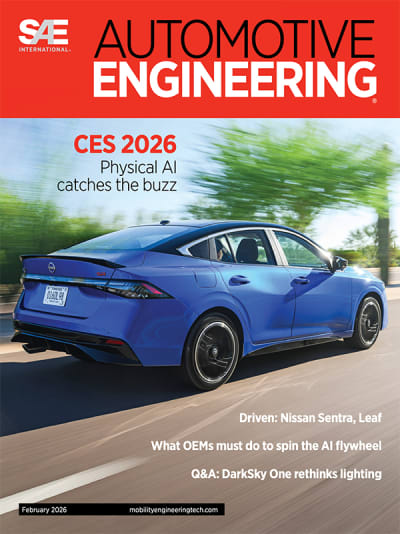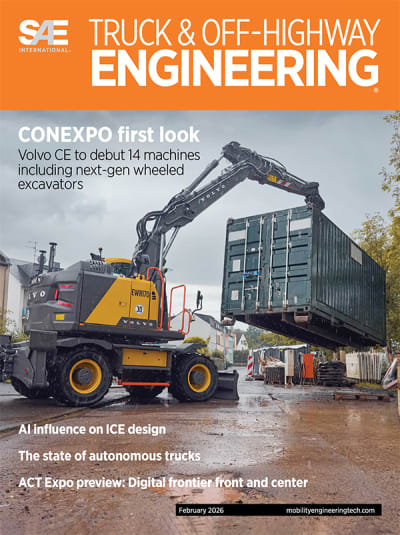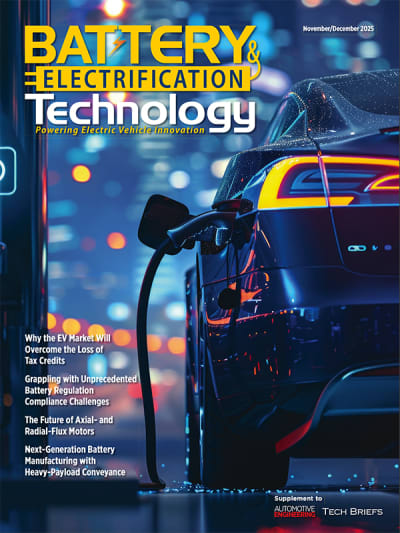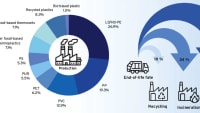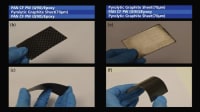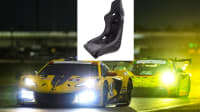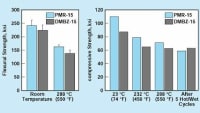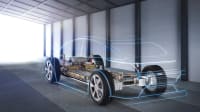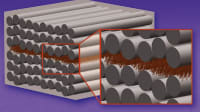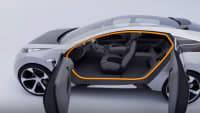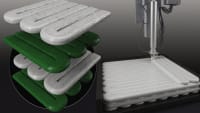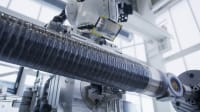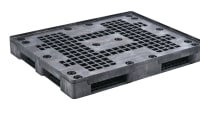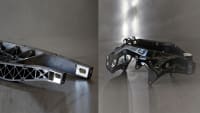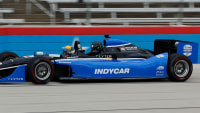Altair Honors Innovations in Automotive Lightweighting and Sustainability
Plastics and composites technologies that reduce weight and emissions dominate the 2024 Altair Enlighten Awards.

General Motors engineers opted for a battery structure comprised entirely of high-performance polymeric materials for the 2024 Chevrolet Corvette E-Ray’s hybrid powertrain. The thermoplastic battery module, which delivers a 37% weight reduction and a 25% cost savings compared to traditional aluminum, took the top spot for the Module Lightweighting category in this year’s Altair Enlighten Awards.

Five other category winners, along with runners-up and one honorable mention, also were honored during an awards ceremony at the 2024 CAR Management Briefing Seminars (MBS) in Traverse City, Michigan. They demonstrate how automotive and off-highway companies are applying advanced technologies and computational intelligence to create a more sustainable future for the industry.
Collaboration throughout the supply chain was paramount in driving innovation, according to Nick Compton, global battery plastics and composites technical specialist at GM. “We’re working hand in hand with our suppliers. There’s a bigger input especially in the materials space and injection molding or whatever the process is,” he said at the MBS conference. “In the past, it was ‘okay, we have this resin that we’ve used in engines for 20 years,’ you just specify it and that’s the end of it. We don’t have that luxury” with hybrid and EV batteries.
Module Lightweighting
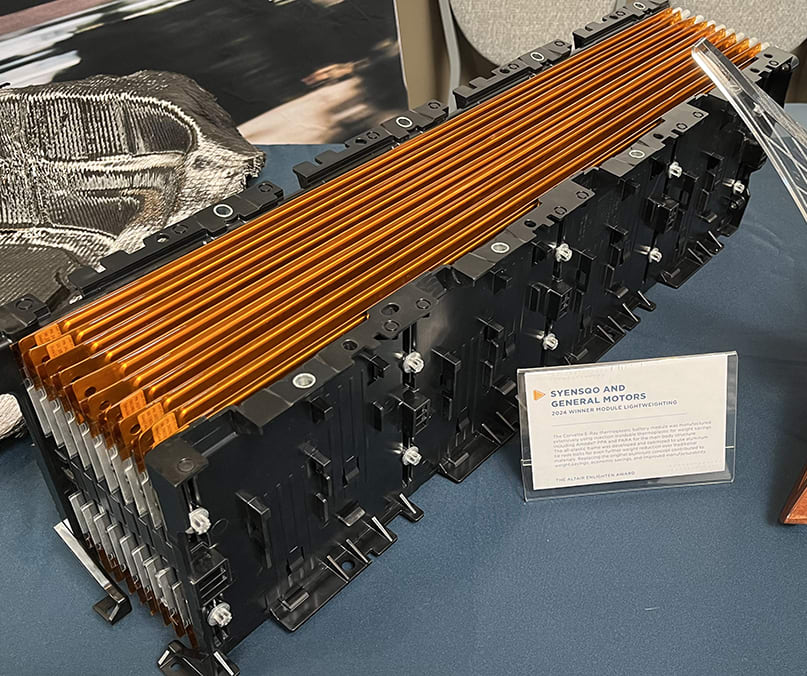
Winner: Engineers at General Motors worked closely with counterparts at RTP and Syensqo to develop the thermoplastic battery module for the hybrid E-Ray. Designed to fit the ICE Corvette’s tunnel, the hybrid battery structure uses RTP’s PARA material for the two side plates and Syensqo’s 45% glass-reinforced Amodel PPA for 45 repeated spacers that eliminated the need for compression limiters and isolation countermeasures. The design includes a unique cell-lock feature that stabilizes battery cells.

“We started this project off with a metal-plastic combined module,” GM’s Compton said. “But the Corvette vehicle team really challenged us to remove as much weight as possible from this module. We had a great supporting cast with RTP and Syensqo – we asked a lot from the resins that we selected.” The team even targeted the fasteners used in the module, selecting aluminum instead of steel, “trying to get grams wherever we could out of this module,” he said.
Runner-up: Toyota worked with supplier partners US Farathane and BASF to develop the second-row composite seat structure in the 2024 Toyota Tacoma. The seat structure features 30% less mass than the previous generation of steel seats and 20% less mass than the current resin seats in the 2022 Toyota Tundra. The new structure also consolidated more than 55 parts into just four components.
Enabling Technology
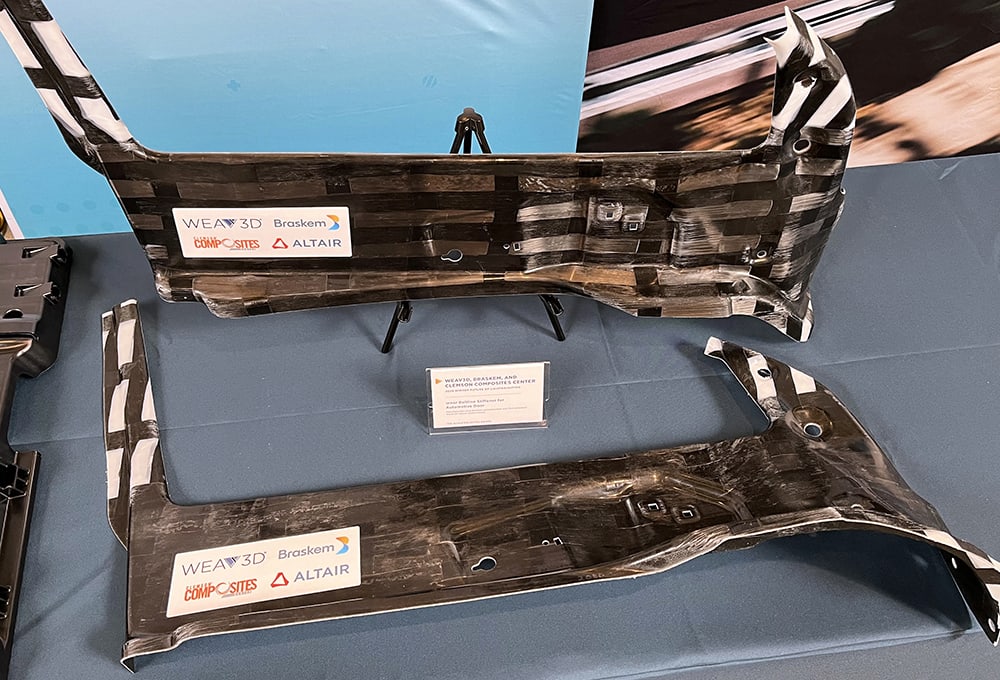
Winner: CompositeEdge GmbH won for its EcoFiber AFP (automated fiber placement) high-performance structures that utilize natural fiber composites – such as flax and hemp fiber – blended with plastic to support the automated manufacture of body panels, interior trims, chassis and suspension parts without additional adhesives. The thermoplastic matrices reportedly maintain the integrity and recyclability of the composite structures better than bio-resins, which can degrade. The use of natural fiber composites significantly reduces carbon emissions and energy consumption compared to synthetic materials, according to CompositeEdge.
Runner-up: Teijin Automotive Technologies’ fully automated preforming process enables the mass production of carbon fiber preforms to be used in automotive components – in this case, a vehicle door. The precision of the automated process optimizes the amount of material used and recycles a small amount of offal (waste). The new process reduces required labor by 20%.
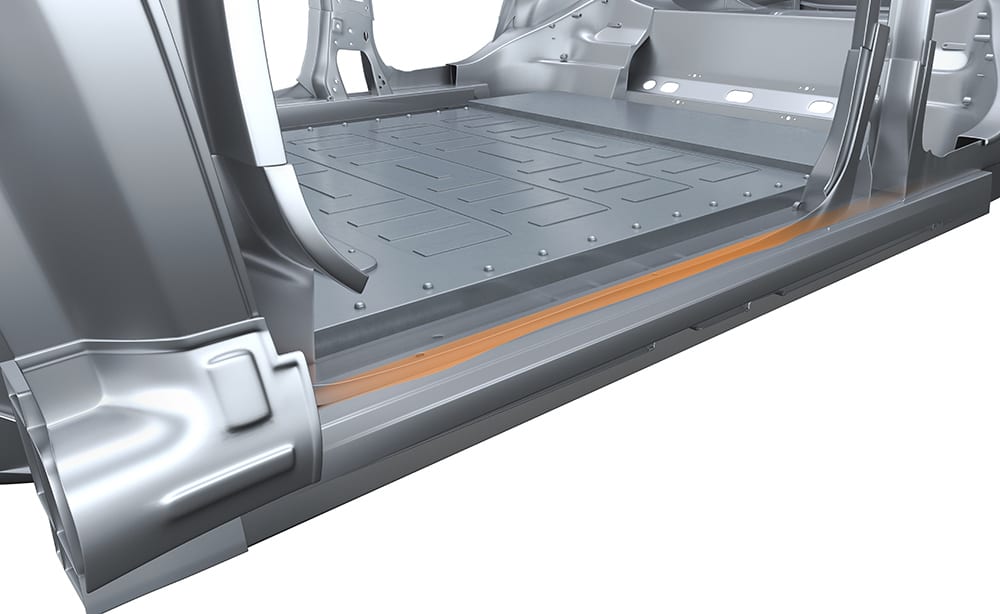
Honorable mention: Bemis Manufacturing and BASF developed large hydraulic tanks for compact excavators using BASF’s polyamide, which delivered reductions in lifecycle costs and CO2 emissions. By combining injection molding and vibration welding, the approach resulted in 5% mass savings and 20% lower costs compared to traditional roto-molding.
Future of Lightweighting
Winner: WEAV3D, Braskem and Clemson Composites Center collaboratively developed a composite lattice-reinforced polypropylene sheet suitable for vehicle body structures. Manufactured with a highly automated forming cycle that produces more parts using less energy, the new sheet reduces cost by 50% and weight by 23% compared to CFPA6 organosheet (nylon 6) and weighs between 60-70% less than steel. The process also results in a 62% reduction in trim scrap by weight. Compared to steel, the polypropylene sheet reportedly displays better energy absorption and shape recovery.
“Our line of sight to first production is likely model year 2026, production [commencing] at the end of next year,” Lewis Motion, founder and CEO of WEAV3D, said at the MBS conference. “The more we can get people to design with the approach that we have, the more beneficial it can be used throughout the vehicle – not just as closures but even things like the battery box.”
Runner-up: Carsolia Composites introduced a patent-pending composite coil spring that’s 50% lighter than steel. The carbon fiber composite material also has 50% less CO2 equivalent per kilogram vs. steel, resulting in a 75% overall reduction of CO2 emissions. Carsolia claims it can incorporate variable thicknesses for tuned spring rates during compression range and that its production process can support high-volume vehicle production.
Sustainable Product

Winner: DuPont BETAMATE broad bake adhesive technology helps reduce energy use and greenhouse gas emissions during vehicle body manufacturing by allowing adhesives to cure at about 25°C lower temperatures, thus saving energy via reduced e-coat oven temperatures and shorter oven cycle times. The technology also eliminates the need for cold storage thanks to a special formulation that extends shelf life.
Runner-up: Bridgestone Americas manufactures the Turanza EV grand touring tire with 50% renewable and recycled materials – one of the highest percentages among commercially available replacement tires – and features Bridgestone ENLITEN technology to optimize performance and improve life span. Bridgestone is aiming for all its tires to be composed of 100% renewable and recycled materials by 2050.
Sustainable Process
Winner: BMW M GmbH along with partners AMC GmbH, Bcomp Ltd., Gradel Lightweight Sàrl, and Lasso Ingenieurgesellschaft designed the BMW M Visionary Materials Seat that focuses on circular design principles. The seat features a monomaterial lightweight design that uses sustainable, renewable materials such as recycled polyester textile, flaxfiber BioComposite, and biogene leather alternatives. The composite can be made from carbon, basalt, glass fiber or natural fibers as needed.
Runner-up: Toyota Motor Manufacturing Canada and PPG Industries were recognized for EPIC200X electrocoat, which enhances corrosion protection for automotive bodies while significantly reducing environmental impact. At the Toyota facility, the new product and application process enables a total reduction of 3,500 metric tons of CO2 emissions per year. It also reduces the amount of applied product per vehicle by 0.6 kg, and the new application process saves 5,626,000 kWh of energy and 1,843,000 gallons of water per year.
Responsible AI
Winner: Dow Inc.’s SPECFLEX polyurethane solutions focus on developing and using cleaner raw materials and unique design principles to optimize performance. Achieving equivalent mechanical and ageing properties compared to traditional formulations, these solutions reduce total volatile organic compounds (VOCs) by more than 50%, formaldehyde by 60% and acetaldehyde by 80%. An AI aldehyde predictive model accelerates market response by capturing the factors contributing to odor and translating complicated non-linear features into real-world related performance features – enabling outcome prediction. Dow says machine learning enabled a reduction in the number of experiments from about 800 to just 50 and cut a two-year design cycle down to about six months.
SAE International and its Automotive Engineering and Tech Briefs publications served as media partners for the 2024 Altair Enlighten Awards, and the author participated as a judge for the three lightweighting categories.
Top Stories
NewsRF & Microwave Electronics
![]() Microvision Aquires Luminar, Plans Relationship Restoration, Multi-industry Push
Microvision Aquires Luminar, Plans Relationship Restoration, Multi-industry Push
INSIDERAerospace
![]() A Next Generation Helmet System for Navy Pilots
A Next Generation Helmet System for Navy Pilots
INSIDERDesign
![]() New Raytheon and Lockheed Martin Agreements Expand Missile Defense Production
New Raytheon and Lockheed Martin Agreements Expand Missile Defense Production
INSIDERMaterials
![]() How Airbus is Using w-DED to 3D Print Larger Titanium Airplane Parts
How Airbus is Using w-DED to 3D Print Larger Titanium Airplane Parts
NewsPower
![]() Ford Announces 48-Volt Architecture for Future Electric Truck
Ford Announces 48-Volt Architecture for Future Electric Truck
ArticlesAR/AI
Webcasts
Defense
![]() Cooling a New Generation of Aerospace and Defense Embedded...
Cooling a New Generation of Aerospace and Defense Embedded...
Power
![]() Battery Abuse Testing: Pushing to Failure
Battery Abuse Testing: Pushing to Failure
Connectivity
![]() A FREE Two-Day Event Dedicated to Connected Mobility
A FREE Two-Day Event Dedicated to Connected Mobility
Automotive
![]() Quiet, Please: NVH Improvement Opportunities in the Early Design Cycle
Quiet, Please: NVH Improvement Opportunities in the Early Design Cycle
Electronics & Computers
![]() Advantages of Smart Power Distribution Unit Design for Automotive &...
Advantages of Smart Power Distribution Unit Design for Automotive &...
Energy
![]() Sesame Solar's Nanogrid Tech Promises Major Gains in Drone Endurance
Sesame Solar's Nanogrid Tech Promises Major Gains in Drone Endurance

